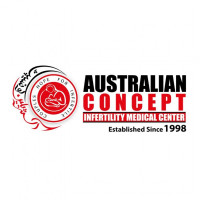Endometriosis and Fertility: Treatment Options for Conception

Strong 8k brings an ultra-HD IPTV experience to your living room and your pocket.
Endometriosis is a challenging condition affecting millions of women worldwide, especially those hoping to conceive. It occurs when the tissue lining the uterus, called the endometrium, grows outside the uterine cavity. This can cause pain, inflammation, and scarring, often leading to fertility challenges.
How Endometriosis Impacts Fertility
Endometriosis can significantly impact fertility, depending on its severity. When the endometrial tissue grows outside the uterus, it may attach to the ovaries, fallopian tubes, and other reproductive organs. This abnormal tissue can create adhesions or scar tissue, which can hinder the movement of the egg or sperm, making fertilization difficult. In severe cases, it can block the fallopian tubes entirely. Endometriosis may also disrupt hormonal balance, affecting the quality of the egg and regularity of ovulation.
Due to these factors, women with endometriosis often experience delayed conception. Consulting an infertility clinic in Lahore can provide comprehensive treatment options and guidance tailored to individual needs.
Treatment Options for Conception with Endometriosis
There are several treatment strategies that can help women with endometriosis increase their chances of conception. These range from medication and lifestyle changes to advanced reproductive technologies, such as ICSI treatment and IUI treatment.
1. Medication and Hormonal Treatments
For women with mild endometriosis, hormonal therapy can be an effective first step. Medications such as birth control pills, progestins, or gonadotropin-releasing hormone (GnRH) agonists can suppress endometrial growth and manage symptoms. While these treatments may alleviate pain and inflammation, they are not suitable for women actively trying to conceive, as they work by preventing ovulation. However, they can be a useful preparatory step before starting fertility treatments.
2. Laparoscopic Surgery
Laparoscopic surgery is a minimally invasive procedure that allows doctors to remove endometrial growths and adhesions, improving reproductive function. For women with moderate to severe endometriosis, this surgery can increase the chances of natural conception. Many women have had successful pregnancies post-surgery, either naturally or through assisted reproductive technology (ART).
3. Intrauterine Insemination (IUI)
IUI treatment is a popular choice for women with mild to moderate endometriosis. In this procedure, sperm is directly inserted into the uterus, bypassing any obstacles in the fallopian tubes or reproductive tract. This increases the chances of the sperm meeting the egg and fertilizing it. For best results, IUI is often combined with ovulation-stimulating medications to enhance egg production.
4. In Vitro Fertilization (IVF)
IVF has proven effective for women with endometriosis, particularly those who have not achieved pregnancy through other methods. During IVF, eggs are harvested from the ovaries, fertilized in a lab, and then placed in the uterus. This bypasses the fallopian tubes entirely, which is especially beneficial for women with blocked or damaged tubes due to endometriosis.
The success rate of IVF for endometriosis patients varies based on age, severity of the condition, and overall health. IVF success rates are generally higher at reputable fertility centers, such as a well-established infertility clinic in Lahore.
5. Intracytoplasmic Sperm Injection (ICSI)
ICSI treatment is often combined with IVF for optimal results. In ICSI, a single sperm is injected directly into the egg, enhancing the likelihood of fertilization. This technique is ideal for couples experiencing both endometriosis and male infertility. By ensuring fertilization, ICSI addresses some of the barriers that endometriosis creates, such as poor egg quality or disrupted sperm motility.
Lifestyle Modifications to Support Conception
In addition to medical treatments, certain lifestyle adjustments can improve fertility for women with endometriosis. These modifications include:
Dietary Changes: A diet rich in anti-inflammatory foods, such as leafy greens, whole grains, and omega-3 fatty acids, can help reduce inflammation associated with endometriosis. Avoiding processed foods and reducing sugar intake also supports hormonal balance.
Regular Exercise: Exercise can help reduce estrogen levels, which may alleviate symptoms of endometriosis. Low-impact activities like yoga and swimming are particularly beneficial.
Stress Management: High stress can worsen endometriosis symptoms and disrupt hormonal balance. Mindfulness techniques, meditation, and regular relaxation practices can improve mental well-being and support fertility.
Weight Management: Maintaining a healthy weight can positively influence hormone regulation and improve the chances of conception.
Choosing the Right Fertility Treatment
Every woman’s experience with endometriosis is unique, making individualized treatment essential. When selecting a fertility treatment, it's crucial to consider factors like age, the severity of endometriosis, and overall health. For many women, the combined approach of lifestyle changes and advanced reproductive technology provides the best results.
Visiting an experienced infertility clinic in Lahore can offer access to expert advice and personalized care. Specialists at these clinics provide various options, from initial fertility evaluations to advanced treatments like ICSI and IVF.
Conclusion
Endometriosis can pose significant challenges to conception, but a range of effective treatments and lifestyle changes can help overcome these obstacles. From hormone therapies to advanced fertility treatments like IUI treatment and ICSI treatment, women with endometriosis have more options than ever to achieve successful pregnancies. By consulting a qualified infertility clinic and adopting supportive lifestyle habits, women with endometriosis can maximize their chances of building the family they desire.
Note: IndiBlogHub features both user-submitted and editorial content. We do not verify third-party contributions. Read our Disclaimer and Privacy Policyfor details.







